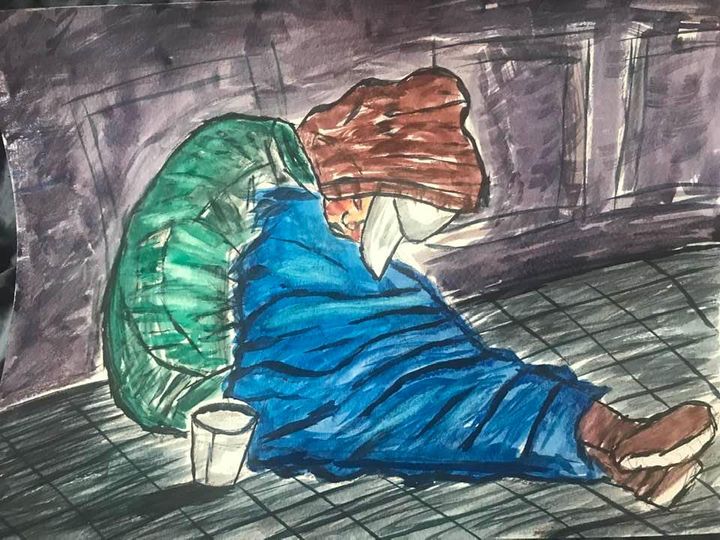
When we get chronologically older, the body and mind age and become less able to bounce back from illness, injury, or a setback. This is true for those who live in comfort, yet it is truer for people who live in poverty and resultant hardship, for incarcerated people, and for the unhoused. I am in the latter half of my fifties, and my sister expressed concern that I might die when I’m in my early sixties, due to multiple chronic health issues. She brought up the reality that if I don’t live very long, it will affect those who are left behind.
Mental illness, resultant poverty, poor self-care, poor diet, lack of exercise, and the effects on the organs of psychiatric medications, contribute to less life expectancy for mentally ill adults who do not self-harm.
A diagnosed psychiatric condition seems to be a life sentence to poverty and institutionalization. Within being supervised and restricted by the mental health treatment systems, we are fed poor diets, we have lack of legitimate gratification, we lack privacy, and, often, we suffer from resultant misery. The gratification we are allowed to anticipate is usually a slice of chocolate cake, a slice of pizza, and maybe some fruit punch. This is not stellar for physical health.
For the unhoused, the situation is worse. Without adequate shelter from the elements, without a reliable source of food and medicine, without any money, an early death is a real probability. The level of misery is unfathomable to the privileged people who make all of the decisions.
For the incarcerated, living conditions do not easily allow for peaceful moments. The stimuli are overwhelming, and the level of misery is unfathomable to anyone who has not been incarcerated. It stinks.
This is the U.S.A. Why does this happen? Especially when just on the other side of town, people are living in mansions worth several million dollars, people are driving BMWs and Teslas, and people do not need to worry about enough to eat or good medical care.
Obviously, there is a difference between the “haves” and “have nots.” Those who “have” are able to concern themselves with issues such as liking oneself, difficulty with self-image, and with being important. To a rich person, an insult is devastating. To a poor person, insult us all you want, but throw in a meal or a ten-dollar bill.
I embarked on writing twenty years ago with the belief that it could improve my prospects of having better living conditions. The surprising outcome is I’ve been able to write manuscripts that have raised awareness and that have done great things for people. I continue to lack income. Yet, I’m getting something more; meaning. Meaning doesn’t buy you a loaf of bread, but on the other hand, it gives a reason why I should have one and keep myself going.
I hope to get the health issues dealt with, and to have a normal lifespan. Yet, no one can predict the future. If you are seeing this essay, it is February of 2022. We have plenty of challenges, and if we can tackle them, it can bring much satisfaction.
Jack Bragen currently lives in the San Francisco Bay Area.
